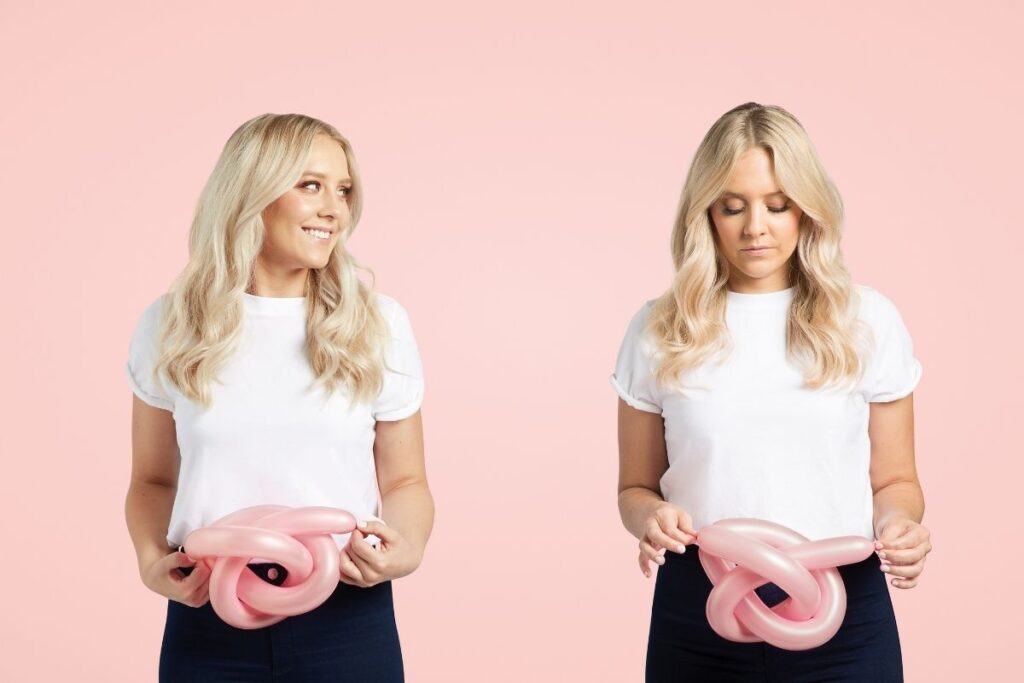Breaking poo taboos with The Gut Stuff
More and more research is suggesting that the health of our guts is key to our overall physical health and emotional well-being. Scientists now treat the gut as its own organ, after all, it is a unique ecosystem living right inside us.

Often referred to as ‘our second brain’, 2020 has pushed the role of the gut and its importance further into the limelight, and it’s right on time.
We caught up with DJs and presenters Lisa and Alana Macfarlane (AKA The Mac Twins), the faces behind the straight-talking, taboo-breaking The Gut Stuff. Lisa and Alana talk us through how they’re on a mission to make gut health accessible to everyone, and just how this year has been key to revolutionising gut health.
Hi Lisa and Alana! Could you explain how the gut is connected to the immune system?
A staggering 70% of your immune system resides in your gut in gut-associated lymphoid tissue (nicknamed GALT to save the typing!). Your gut is the interface between your insides and the outside world, so it’s a pretty big deal when it comes to your immune system.
You aren’t just born with a fully functioning immune system, like learning a language, your immune system needs to be educated – this is where your gut and its delicate ecosystem of microbes (bacteria) come in. The types of microbes you are exposed to throughout your life (and the resident microbes colonising in your gut) influence how well your immune system works. No two guts are the same, so our guts and immune systems all work differently.
Do you think the pandemic has changed people’s attitudes towards the importance of gut health?
We’ve been inundated with people reaching out to tell us how their guts have changed in the current pandemic and asking why. Some found symptoms were relieved and others found things got worse (lockdown constipation is a thing!).
Knowledge really is power when it comes to looking after your gut.
The interest in gut health and its link to immunity has grown significantly, and with that comes the extra challenge of trying to reach every member – new to the community and long-standing members – to support them with evidence-based knowledge, a guiding hand to dispel the many gut health myths. What’s important is to tune in, take stock of what is going on and take ownership over your gut health, not just for now but forever.
In your work, how are you striving to make gut health accessible for everyone?
Each week, we listen to our community and pick out any false truths around gut stuff (celery juice diet anyone?!). We work with doctors, dietitians, nutritionists and scientists to bring the most relevant and evidence-backed information to the table.
Knowledge really is power when it comes to looking after your gut. We started The Gut Stuff to be able to make gut health accessible to all, not just a middle-class luxury. Our advice is affordable (no goji berries in sight), credible, relevant and easy to digest.
Are there any common gut health themes The Gut Stuff team has spotted?
At The Gut Stuff, we get asked a lot about inflammation. Inflammation is a normal immune response, but if it becomes chronic, it can trigger a host of disease and disorders, including mental illness. Some travelling microbes trigger inflammation (like a dodgy bug) but, the good news is, there is plenty you can do to support your immune system and your gut.
One of our starting points is to tune in and start a diary. This isn’t a food diary for counting calories but to monitor what you’re eating, how you are feeling (mentally and physically), your poos and how much you are moving. A diary helps you truly listen to your body and to spot any patterns that may cause you discomfort.
You can also use The Gut Stuff Magnet Set: a set of three – a shopping checklist, meal planner and ferment checklist – created to help you plan healthy meals, reach 30 (#GutTo30) plant-based foods each week when you make your shopping list and ensure you can easily build ferments into your day to day life.

The magnet set was created based on research showing that if we plan meals ahead and use shopping lists, we are more likely to eat healthier meals including much more vegetables. We also created them to help everyone form new habits; you’ll see the magnets every day on your fridge, helping you to make simple adjustments to your gut journey that’s a little bit easier.
Are there any gut health myths you’ve come across?
The candida diet. The number of people who message us having self-diagnosed (Dr Google) candida, candidiasis, candida infection, candida albicans, candida overgrowth is phenomenal. This usually results in the person going on a ‘candida diet’ in a bid to get rid of what they think is the problem. This is a low sugar diet which excludes gluten and alcohol, limits dairy, encourages fermented foods and probiotics.
The symptoms for candida overgrowth vary and will depend on the severity. They include stomach pain, bloating, diarrhoea, constipation, gas and nausea. These symptoms could be due to a whole host of other underlying conditions and should be ruled out by a qualified medical professional with a proper evidence-based examination, which may include a microscopic examination.
One thing we do know for certain about diet is the need for more fibre.
At present, there isn’t enough evidence required to promote the candida diet as a blanket approach to persistent thrush. However, some people have found this approach effective in managing symptoms, when working under the guidance of a qualified nutrition professional.
One thing we do know for certain about diet is the need for more fibre. 90% of us are not getting enough. We need 30g of fibre per day, which can be a high number to hit if you are unsure of how much each food contains or if you are avoiding grains for fear of feeding candida. There’s some interesting research to show that it is difficult to consume enough fibre without consuming grains based on five portions of fruit and veg a day.
If you’re struggling to manage your digestive issues, getting support from a registered nutrition professional can help you understand how the gut affects your overall health, and gain some simple techniques to adjust your diet to manage digestive problems. To find a professional, simply browse profiles and when you find someone you resonate with, send them an email.
Lisa and Alana Macfarlane founded The Gut Stuff in 2014, a straight-talking dedicated site for all things gut health, poo and taboos. Backed by an expert team of scientists, nutritionists, dietitians and doctors, The Gut Stuff is a no-nonsense guide to the gut. Find out more at thegutstuff.com and @thegutstuff.
Photography | Rachel King

Find a nutritionist dealing with Gut health
All nutrition professionals are verified


